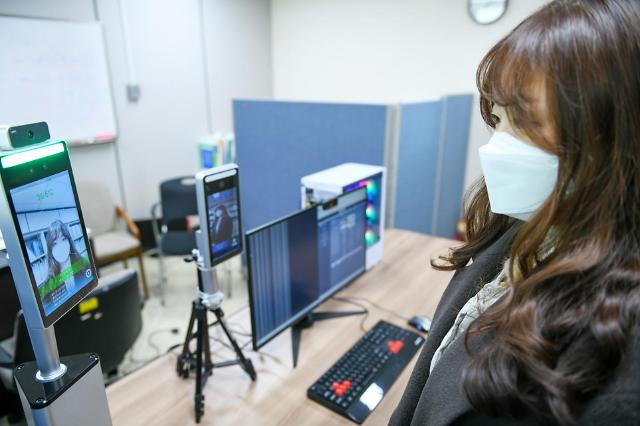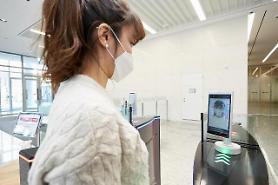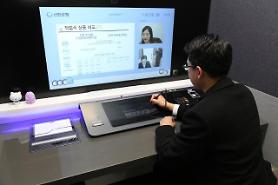
[Courtesy of the Korea Electrotechnology Research Institute]
SEOUL -- A South Korean research team has developed a face recognition and entrance management system that used artificial intelligence to achieve a recognition rate of up to 99 percent. With localized technologies, the team aims to roll out a perfect system targeting foreign clients through additional research into algorithms.
The government-funded Korea Electrotechnology Research Institute (KERI) said that its research team led by Bae Jeong-hyo has collaborated with AI companies to develop the system. If information is registered once, the system can check identity information even if visitors wear masks.
"KERI's technology is the first achievement in South Korea that can be linked to the entrance management system based on the highest level of facial recognition," Bae said in a statement on January 26. "By realizing the localization of technologies that have relied on expensive import systems, it will greatly contribute to the formation of markets in related fields."
The system will have a great effect if it is installed in government offices and public institutions, factories and other multi-use places, the institute said, adding that at airports, it can be used in conjunction with passport information to allow travelers to go through security checks quickly and simply.
Compared to other biometrics such as fingerprint or eye iris, the accuracy of a facial recognition system is lower, although it is widely used as access control in security systems due to its contactless and non-invasive process. Facial recognition systems work, in general, by comparing selected facial features from given images with faces within a database.
In February 2020, LG CNS, an IT service provider in South Korea, has developed an advanced facial recognition system which was set up at its head office, through cooperation with SenseTime, an AI SaaS (Software as a Service) company founded in Hong Kong. The system recognizes faces and analyzes facial information with AI technology to control identification and access. Recognition is possible even when those wearing masks pass the entrance gates looking at smartphones. .
Copyright ⓒ Aju Press All rights reserved.



